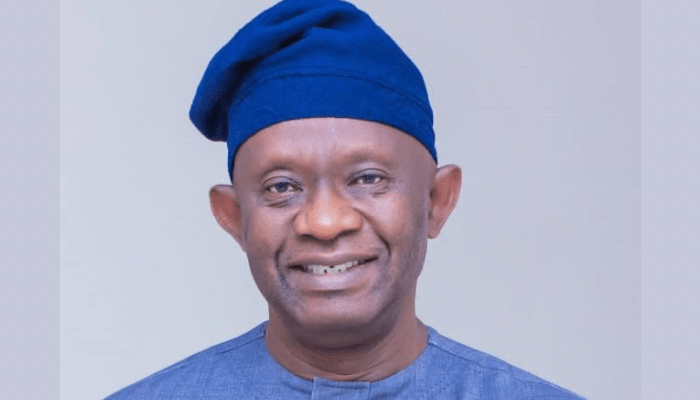Senator Sunday Karimi’s statement underscores the staggering financial burden that insecurity, particularly terrorism and insurgency, has placed on Nigeria. His revelation that over half of the nation’s revenue in recent years has been consumed by the fight against these threats paints a stark picture of the economic strain the country faces. This massive expenditure diverts resources from crucial sectors like education, healthcare, and infrastructure development, hindering overall national progress. Karimi’s assertion emphasizes the urgent need for a comprehensive and sustainable solution to insecurity, not just for the sake of peace and stability but also for the economic well-being of the nation. The continuous drain on national resources by these conflicts necessitates a shift in focus towards addressing the root causes of insecurity and implementing strategies for long-term resolution.
Karimi’s remarks were a direct response to Senator Ali Ndume’s criticisms of the current administration’s federal appointments, which Ndume argued lacked balance and diversity. While acknowledging the importance of equitable representation, Karimi contends that the gravity of the insecurity crisis demands a more unified and focused approach from national leaders, particularly those from the most affected regions. He believes that dwelling on issues like appointment imbalances detracts from the more pressing and existential threat of insecurity. He suggests that national leaders, especially those from regions ravaged by insurgency, should prioritize addressing this immediate threat over other political concerns. This prioritization, in Karimi’s view, is crucial for the survival and prosperity of the nation.
Karimi’s disappointment in Ndume stems from the belief that, as a senior legislator and former Chief Whip of the Senate, Ndume should be leveraging his experience and influence to tackle the insecurity challenge head-on. He criticizes Ndume for what he perceives as a focus on “stoking ethnic sentiments” rather than contributing to practical solutions for the ongoing crisis. Karimi urges Ndume to engage with his constituents and explore local solutions to the Boko Haram insurgency, emphasizing the importance of community-based initiatives in combating insecurity. He argues that Ndume’s consistent criticism of the federal government is unproductive and detracts from the collaborative effort required to address the complex security challenges.
Karimi advocates for a more proactive and locally-driven approach to tackling insecurity, citing his own efforts in his constituency as an example. He highlights his role in facilitating the construction of a military base in Yagba West, Kogi State, and providing additional logistical support to address security threats in his region. This proactive stance, according to Karimi, demonstrates a commitment to tangible action rather than mere rhetoric. He contrasts his approach with Ndume’s, suggesting that concrete actions and local engagement are more effective than generalized criticism. Karimi implicitly calls on other leaders to emulate his example and take ownership of the security challenges within their respective constituencies.
Furthermore, Karimi emphasizes the human cost of the ongoing insurgency, pointing to the loss of numerous soldiers, including a young captain from his own senatorial district who died serving in Ndume’s region. He stresses that the “trillions of Naira” spent fighting insurgents and the countless lives lost defending the nation’s territorial integrity represent far more critical issues than the political disputes that Ndume is highlighting. By highlighting these losses, Karimi seeks to underscore the urgency and gravity of the security situation and to refocus attention on the real threat to the nation’s existence. This emphasis on the human cost serves to amplify his call for unity and collaborative action against the common enemy.
The backdrop to this exchange is Ndume’s earlier criticism of President Tinubu’s political appointments during an interview on Arise TV. Ndume argued that the appointments did not adequately reflect the diversity enshrined in the constitution. While Karimi doesn’t dismiss the importance of equitable representation, he contends that the current security crisis demands a more immediate and concerted effort from all leaders. He suggests that focusing on internal political debates while the nation faces such a significant threat undermines the collective effort needed to address the overarching security challenges and safeguard the nation’s future. In essence, Karimi calls for a prioritization of national security over political point-scoring, emphasizing the existential threat posed by the ongoing insurgency and the urgent need for united action.














